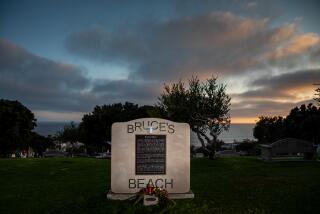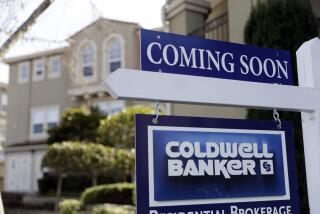Homeowner Groups Face Tax Liability : Taxes: An IRS battle in San Diego could result in hefty back-tax payments for such associations across the nation.
- Share via
A tax dispute between some San Diego homeowner associations and the Internal Revenue Service could determine whether such associations nationwide might be liable for tens of millions of dollars in additional taxes.
If the IRS prevails, the amounts owed by individual homeowner associations could be quite substantial. In one San Diego case, the IRS is seeking $60,000 from one association alone.
The argument is over money that the associations sock away for repairs to common areas of their subdivisions. The IRS contends that in some cases the cash is taxable, which would mean hefty back-tax bills for some associations.
The dispute centers on the application of a law passed by Congress in 1976 designed to give homeowner associations a tax break.
Before 1976, these associations were taxed just like corporations. But that led to tussles with the IRS over how much of homeowners’ monthly dues were taxable.
For example, an association might want to set aside part of those dues for several years to save up for a big repair. But if it held on to the money for more than a year, in some instances the IRS considered it income and taxed it.
In 1976, Congress lent the associations a hand: They could file a new tax form and avoid taxes on these reserve accounts, even if they held the money more than a year.
There was a rub, though: The tax rate on some associations’ interest income would go up.
The interest the associations collected on their reserve accounts--which was income and so always taxable--would be taxed at a flat rate of 30% if they filed the new form. Corporations, by comparison, have tax rates between 15% and 34%, depending on how much income they earn.
Still, the new tax forms were popular with some of the larger associations. They were actually better off with the flat rate of 30% than the maximum rate of 34%. If the interest on a reserve account is more than $186,000 a year, the association benefits by using the new tax form and paying the flat rate.
Many smaller associations, though, have less interest income. They can use the old form--called an 1120--and get a tax rate lower than 30%.
But some associations were still getting the old, lower tax rates and holding repair money longer than a year without segregating it in a separate account under the strict controls the IRS demands. In those cases, the IRS says, the entire amount of the repair fund is taxable, not just the interest.
*
And the IRS is contending that in some cases it can go beyond the usual three-year statute of limitations to tax repair funds that were started years ago.
In one case, a 200-unit San Diego condo association has been assessed $60,000 in taxes, says Stephen P. Milner, a Newport Beach tax lawyer at Squar & Clarke, an accounting firm representing the association. That amounts to additional taxes of $300 per unit.
And the IRS is auditing at least a dozen more associations in the San Diego area, say Milner and other tax lawyers, some of them with potentially even bigger tax bills.
(The IRS says that for reasons of taxpayer privacy it can’t comment on audits, and indeed it won’t even confirm that the San Diego audits are underway.)
The reason the IRS is starting with San Diego, says Milner, is because associations there have sued builders over faulty construction and won big judgments. Weary of litigation, but with a lot of cash from the judgments, these associations would be most likely to quickly settle with the IRS, he says. That presumably would allow the IRS to set a quick precedent that could then be applied to levy taxes against other associations.
The IRS denies that it is going after San Diego associations because of their deep pockets. “That’s not a reason I’ve ever heard for an audit,” says IRS spokesperson Judith Golden in Laguna Niguel.
So far, none of the cases have progressed far enough through the IRS system to go to trial in either federal district court or tax court.
And some associations are likely to settle anyway if they owe less on their taxes than what it would cost to hire a lawyer and fight it out in court.
Meanwhile, there’s a lot of money at stake. Perhaps as many as half the state’s 25,000 homeowner associations file the old tax forms, lawyers say.
Across the nation, there are an estimated 150,000 homeowner and condo associations and cooperatives. Thirty-two million Americans are members, says the Community Assns. Institute, a Washington lobbying group. It adds that it still hasn’t decided whether to take a position on the flap with the IRS.
Meanwhile the IRS, says one manager of a San Diego homeowner association, has already told his accountant that it has sent audit notices to Orange County associations. Other homeowner associations say they’ve been told San Francisco is next.
More to Read
Inside the business of entertainment
The Wide Shot brings you news, analysis and insights on everything from streaming wars to production — and what it all means for the future.
You may occasionally receive promotional content from the Los Angeles Times.










